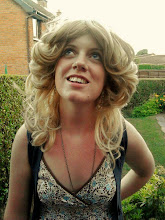When I look at my reflection in the mirror, I see things I am happy with and then things that I want to change.
I look in the mirror now and think my hair is sitting well and I like the jewellery I have chosen for my outfit. However I notice I’ve put on too much blusher and my shoes don’t go with my jeans. So I’m going to change my shoes and tone down my make up, which will make me happy (as I can be).
This is the same as using reflective writing to learn from our experiences, both personal and academic. It’s only when we hold them up in the mirror that we see what worked well and what we have learned that we can do differently next time.
The gird below can act as a framework to help you write your reflection. As an example, I have used it to reflect on my last holiday. Notice the use of "I" and not "we", as reflection is based on our personal perception.
1. What was your experience and what did you hope to gain from it? In June, I spent a week in I wanted to soak up the sun, have great fun, not worry about anything and create happy memories. | 2. Putting yourself back in the experience, how did you feel? (think about your senses: what did you taste, smell, touch, see, hear) When I think back to the holiday, I associate it with bright colours as it was sunny, full of laughs and at night, the place was lit up with various lights and colourful cocktails! During the day there was a contrast, as I felt relaxed as it was peaceful, calm and serene by the pool. |
3. How would you mark the experience on a scale of 1-10 (10 being absolute success) and what contributed to this score? I would give it 8 out of 10. I loved | 4. What would you do next time to increase this score by 2? Next time I would definitely stay for 2 weeks as I felt a week was too short. As I would stay longer, I would think about doing more excursions and seeing different parts of |

No comments:
Post a Comment